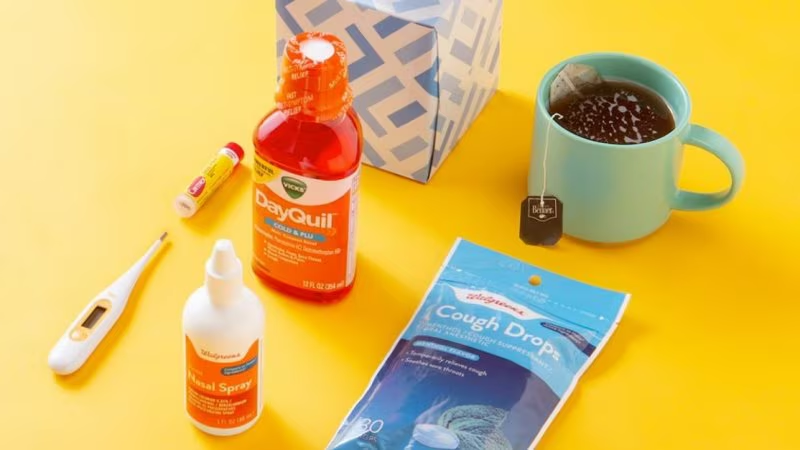Introduction
Flu season arrives annually, often catching people off guard and leading to widespread illness. Preparing ahead with a well-rounded immunity defense kit can make a significant difference in how your body copes with influenza viruses. While vaccines are the cornerstone of flu prevention, complementing them with natural boosters, healthy habits, and smart choices creates a robust defense system.
This article walks you through essential components to build your personal immunity defense kit for flu season, helping you stay healthier and bounce back faster.
Why Prepare for Flu Season?
Influenza viruses mutate regularly, making it difficult to predict severity each year. Preparation involves not just vaccination but supporting your immune system so it can respond effectively. Building a defense kit reduces your risk of infection, minimizes symptom severity, and helps protect those around you.
Core Components of Your Immunity Defense Kit
1. Annual Flu Vaccination
- The most effective way to reduce flu risk and severity.
- Vaccines are updated yearly to target the most common flu strains.
- Recommended for everyone aged 6 months and older, especially high-risk groups.
2. Hand Hygiene Essentials
- Soap and water for frequent handwashing (minimum 20 seconds).
- Alcohol-based hand sanitizers (60%+ alcohol) for on-the-go cleaning.
- Hand hygiene prevents virus transmission from contaminated surfaces.
3. Healthy Nutrition
- Balanced diet rich in vitamins, minerals, and antioxidants.
- Key nutrients for immunity:
- Vitamin C: Citrus fruits, strawberries, bell peppers
- Vitamin D: Sun exposure, fortified foods, supplements
- Zinc: Meat, nuts, seeds, legumes
- Probiotics: Yogurt, kefir, fermented foods
- Avoid excessive sugar and processed foods that may impair immune function.
4. Hydration Tools
- Water bottles for adequate daily fluid intake.
- Herbal teas (ginger, chamomile) to soothe symptoms if needed.
- Staying hydrated helps mucous membranes trap and expel viruses.
5. Rest and Stress Management Aids
- Earplugs or white noise machines for quality sleep.
- Relaxation tools like meditation apps, aromatherapy diffusers.
- Chronic stress weakens immunity; managing stress supports defense.
6. Natural Immune Boosters
- Honey: Soothes cough and throat irritation.
- Garlic: Antimicrobial properties.
- Ginger: Anti-inflammatory benefits.
- Supplements (consult your healthcare provider before starting):
- Vitamin C, Vitamin D, Zinc lozenges.
- Elderberry extract (may reduce flu symptom duration).
7. Personal Protective Equipment (PPE)
- Masks to reduce airborne spread during high flu activity.
- Disposable tissues and no-touch trash bins.
- Gloves when caring for sick individuals.
8. Cleaning and Disinfecting Supplies
- EPA-registered disinfectants for surfaces.
- Cleaning cloths or disposable wipes.
- Regular cleaning reduces the virus on surfaces.
Lifestyle Habits to Strengthen Immunity
Regular Exercise
- Moderate exercise enhances immune surveillance.
- Aim for at least 150 minutes per week of aerobic activity.
Adequate Sleep
- Adults need 7–9 hours per night.
- Poor sleep impairs immune cell function.
Avoid Smoking and Limit Alcohol
- Smoking damages respiratory defenses.
- Excessive alcohol intake suppresses immune responses.
Maintain a Healthy Weight
- Obesity can impair immunity and increase flu complications.
Building a Flu Season Action Plan
- Schedule your flu vaccine early (ideally before flu season peaks).
- Stock your immunity kit with supplements, fluids, and PPE.
- Plan for the rest days if you get sick.
- Educate family members on hygiene and symptom monitoring.
- Identify local clinics or telehealth options for quick access to care.
When to Seek Medical Attention
- If flu symptoms worsen or include difficulty breathing, chest pain, confusion, or persistent high fever.
- Especially important for high-risk individuals (children, seniors, pregnant women, chronic illnesses).
Conclusion
Preparing for flu season by building a comprehensive immunity defense kit empowers you to take control of your health. Combining vaccination, good hygiene, nutrition, rest, and natural boosters creates a multi-layered shield against influenza.
By adopting these strategies early, you reduce your risk of infection, shorten recovery times, and help protect your community. Flu season prep is not just about avoiding illness—it’s about optimizing your body’s resilience for overall well-being.
FAQs:
1. When is the best time to get a flu vaccine?
Ideally, before flu season starts, usually in early fall.
2. Can vitamin supplements replace the flu shot?
No, supplements support immunity, but don’t replace vaccination.
3. How often should I wash my hands during flu season?
Frequently, especially after coughing, sneezing, or touching shared surfaces.
4. Does exercise help prevent the flu?
Yes, moderate regular exercise boosts immune function.
5. Should I use a mask to prevent the flu spread?
Wearing masks in crowded or indoor spaces can reduce flu transmission.






